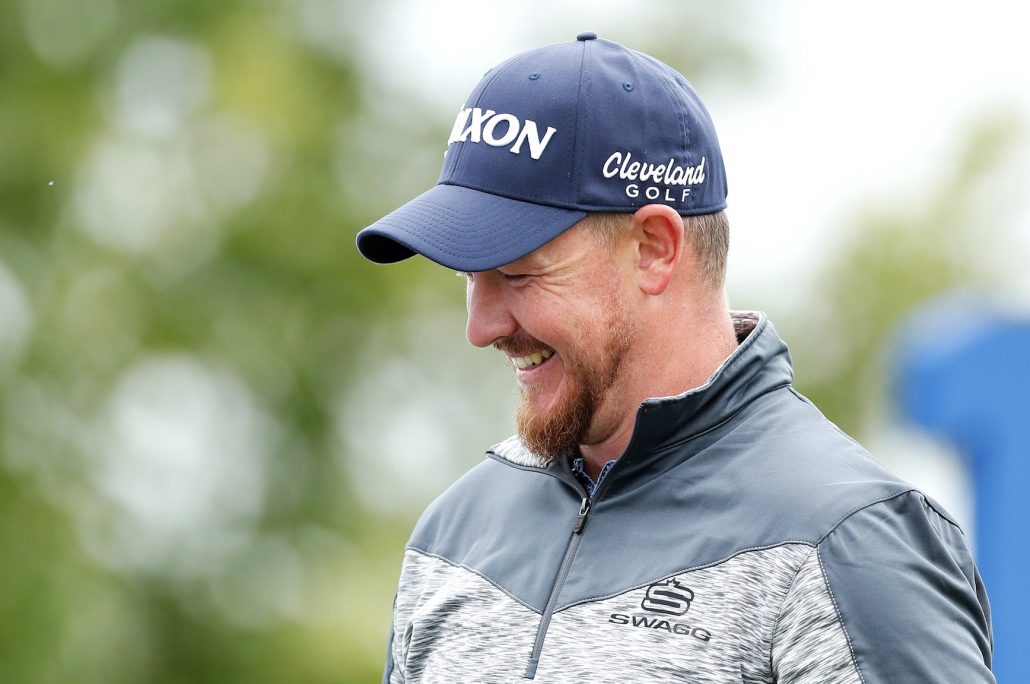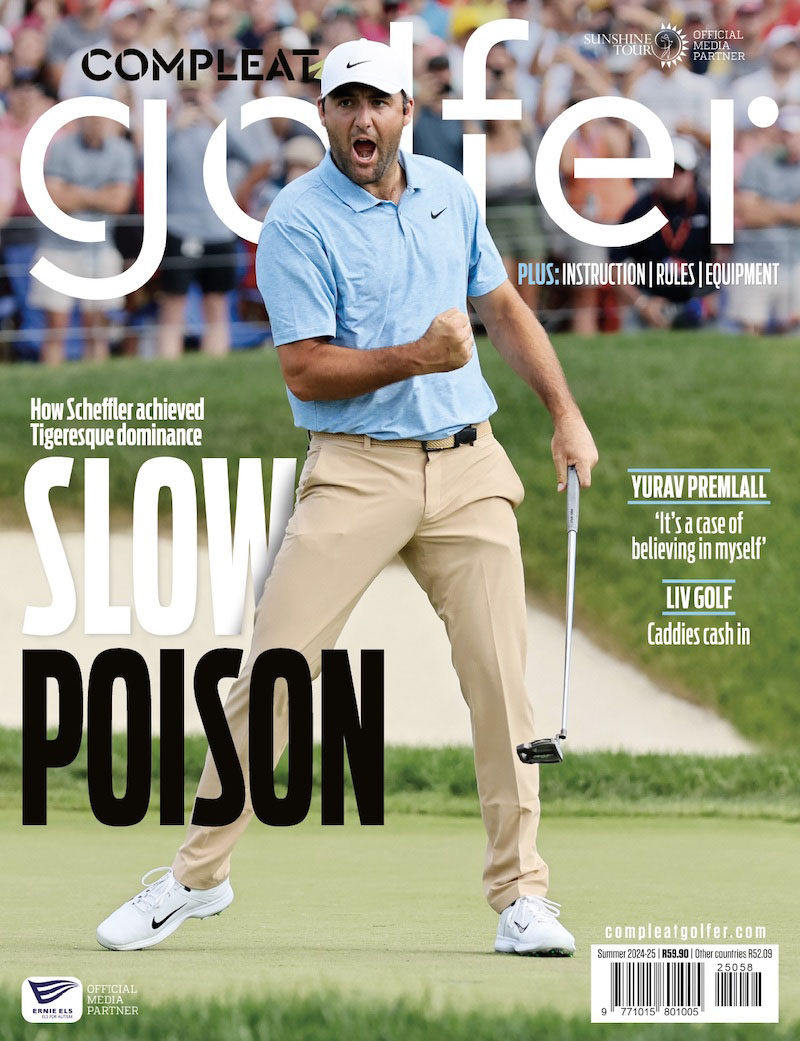Battle-hardened professional Jacques Kruyswijk has forced himself to look inwards, writes MICHAEL VLISMAS.
Mental health has been one of the most highlighted issues of the past few years, and one which has been amplified by the Covid-19 pandemic. Mental health in elite sport has also been in the spotlight as some of the world’s top male and female sports stars have admitted grappling with their inner challenges.
So when Jacques Kruyswijk pops up on your Twitter feed with a Sunshine Tour message about mental health awareness, you may mistake it as just a message of support from one of the latest champions on the Tour.
But Kruyswijk speaks from a position of experience, having been through some very deep waters himself. It’s something he touched on when he won his second Sunshine Tour title at the Sunshine Tour Invitational at Centurion Country Club in September, and briefly referred to having been ‘in a dark space’.
And he is passionate about using his own experience to help others work through the challenges in their lives.
‘I feel mental health isn’t spoken about enough and it’s swept under the carpet by too many sportsmen and sportswomen. It’s like there’s this belief that, “Well, that’s your job so just get on with it.” I also think it’s particularly overlooked in golf, which is an extremely mentally draining sport,’ says Kruyswijk.
For him, the challenges began when his parents divorced as he and his sister were approaching the end of their schooling.
‘Apart from the emotional turmoil of that, it also left my sister and me in a very bad place financially. Neither of us could go to study after school because we just didn’t have the money. That was a very dark time for me. I moved to Pretoria, and Centurion Country Club was so good to me. I started working there and I am forever grateful to them for their support. That’s why my win there was so special for me.
‘For the first three years of my professional career I also had a day job. It was almost impossible to plan a touring schedule around that. Also, let’s be realistic – golf is an expensive sport. It has diversified a lot and work has been done to change this, but when I was growing up golf was still very expensive.
‘So in situations like that you have two choices. You either give up on your dream, or you work even harder to achieve that dream. I decided I wanted the best for myself.’
Kruyswijk made the decision with the classic act of looking at the man in the mirror and asking that age-old question men who have great dreams ask themselves.
‘I looked at myself and I said, “Jacques, how bad do you want this? How bad do you really want this?” It’s easy to say, “Sure, I want it.” But to get to the deeper answer of how bad you really want something and what sacrifices you are prepared to make, well, a lot of people never get that answer from themselves.’
And it’s this question, asked of himself on a daily basis, that keeps Kruyswijk pushing forward.
He often appears as one of the most intense competitors on the Sunshine Tour who seems to put himself under immense pressure to succeed. Kruyswijk admits that this is indeed the case, but prefers the word ‘passion’ to ‘intensity’.
It’s something he says was developed in his upbringing. ‘I grew up on a farm in Louis Trichardt. My grandfather and father were farmers, and that had a tremendous impact on my approach to my career. I grew up in an environment where you only got somewhere through hard work.’
When he won on the Big Easy Tour in his first year as a professional in 2013, it appeared Kruyswijk was on the right track. Then, in 2016, he made his breakthrough on the Sunshine Tour with victory at the Lion of Africa Cape Town Open. He has campaigned on the European Tour and had a number of top-10s there to give him the confidence that he has what it takes to compete at the highest level.
But for somebody like Kruyswijk, there is always that double-edged sword that while being competitive is good, winning is what matters most. And when a win didn’t come for five years before this latest triumph, he found himself in the mire of dark thoughts once again.
‘I play in tournaments because I believe I’m good enough to win. That’s what I work so hard for every day. I don’t chase money. I chase trophies. I chase that satisfaction of working hard and having that rewarded. So when it doesn’t go your way while you are working hard, you start to question and doubt yourself.
‘Also, you start seeing who has your back in those situations. I used to have a huge circle of friends and now it’s very small. When you’re going through those tough times, certain people stop calling or making contact. And then you realise who the people are who stand behind you and want the best for you.
‘I think that’s the biggest thing I’ve learned. Make sure you have a good team around you, because they are who you will rely on when things get tough. People who have your best interests at heart. Those people kept me going. It’s easy to start blaming your coach or your caddie or whatever. But I took responsibility for my own actions and I started nurturing those relationships that mean something to me.’
Kruyswijk says he also took a deep dive into the psychology of sports performance and consulted widely among some of the leading sports psychologists in South Africa, including Dr Henning Gericke, the sports psychologist for the Bulls.
‘It’s in this area where I feel a lot of professional golfers fall in a trap. They doubt themselves and want to start making changes instead of relying on the good team around them to help them through. For me, somebody like my coach Kyle Phelan was phenomenal. He has stood by me all the way for the past six or seven years now. He’s had a plan and we’ve stuck to it. He’s worked with me through all the good and bad days. You need people like that in your life and career.
‘And we’ve just worked on constant improvement. Not major changes, just steady improvement. We keep it simple and always stick to the basics. I like to rely on my athletic ability to play professional sport, rather than becoming too technical. If you focus too much on technique, you can lose focus on the process.’
And it goes without saying that Kruyswijk has also worked extremely hard on his mental fortitude.
‘I’ve grown a lot in this department. I think that’s why I feel so strongly about being a kind of ambassador for mental health. Everybody goes through challenges in their lives with family or work. I play an extremely mentally demanding sport which can also break you down. So I know what it’s like to have to constantly work hard on your mental health so that you can perform. Make no mistake, today’s top sportspeople are mentally strong. They have to be to succeed like they do. And when you chase perfection in an imperfect sport like golf, it becomes even more complex.’
This latest victory hasn’t suddenly changed Kruyswijk’s entire world. The process stays the same and the journey is still filled with its own challenges.
‘In terms of my rankings, it hasn’t done much for me. Financially it also wasn’t a major boost. But mentally, it’s given me the confidence again. It’s not the biggest win in the world, but for where I am now, it’s an important win for my mindset. It’s given me that release of energy again to know I have the capability.
‘When I played on the European Tour, I loved competing against the best, because I want to become the best golfer in the world. Being in that environment tests you on every level, and makes you better.’
This level of focus explains a lot about what you see from Kruyswijk when he’s competing on local fairways. It’s not so much his fear of failure as it is his fear of not being the best golfer he knows he can be. It’s for this reason that he doesn’t even play any social golf, something Mark McNulty also doesn’t do. He plays golf to compete. Full stop. The rest of his time is spent with family and his now small circle of friends. He’ll box to stay fit and hunt or fish to take his mind off things. Or hike with his girlfriend.
Anything to take his mind off that one thing he tries not to make too big in his head, but which is actually everything in his head.
The game of golf.
And the question it asks of him when he stands in front of the mirror.
How badly do you want this?
20 BEST FINISHES
2015: Vodacom Origins of Golf – Vaal De Grace (2nd)
2016: Cape Town Open (1st), Vodacom Origins – Euphoria (2nd)
2017: Joburg Open (T4th), Vodacom Origins – Highland Gate (3rd)
2018: South African Open (T4th), Czech Masters (T7th), BMW PGA Championship (T20th), Open de Espana (T9th), Italian Open (T14th)
2019: China Open (T11th)
2020: Eye of Africa PGA Championship (3rd), Limpopo Championship (T3rd)
2021: Kenya Savannah Classic (T5th), Kenya Open (T5th), Sunshine Tour Invitational (1st), Czech Masters (T7th), Austrian Golf Open (T7th), Cazoo Open (T10th), ISPS HANDA Invitational (T11th)
– This article first appeared in the November 2021 issue of Compleat Golfer magazine. Subscribe here!









